Writing is not easy, yet academics must write. Communicating your research and ideas to your peers through writing is an essential part of an academic career, you may be doing brilliant research, you may be a fantastic speaker or teacher, but if you can’t express your ideas through the written word your career may flounder. Writing lies at the heart of research. There are no quick solutions, fixes or dodges and I don’t profess to have any, but I am interested in the process of writing and seek your help in exploring this.
The importance of writing is no great news and if you are, like me, dyslexic and find the challenge of writing exactly that, a challenge, then what can you do? We all have different approaches to writing – our own coping strategies if you like – that allow us to get the words on the page, the thoughts and ideas clarified and expressed. It is an intensely personal process and what works for me is unlikely to work for you.
So what does works for you? How do you go about writing that difficult piece of prose?
Have a think while I share what works for me.
How I write
Ideas often flow better for me from conversation, but as an introvert I don’t have much time for conversation! So I talk to myself, mentally rehearsing what needs to be said, framing initial ideas and nebulous arguments. I can be seen on the walk to work deep in thought, in fact deep in silent conversation, and not always silent to the amusement of those that walk their dogs in the park I cross each day!
These silent conversations shape my initial draft, since when I sit down to write I am simply noting down the conversation. I then refine this early draft picking out and questioning the logic, developing the argument as I craft iteratively the text before me. For me writing is therefore a process of constant refinement, iteration and clarification as my ideas and argument take shape in the words that I write.
It’s different for everyone
Others work differently I know, my mother for example who is a retired academic talked to me recently of how she used to coin a statement, or phrase, something elegant and clever that she then picked at to see if it was true, forming her argument in light of it. For others it is all about the research question that is being posed and I know that some of my colleagues believe that all your ideas should be formed and in sharp focus before you start to write. It is a bit like having a beautiful artefact that they can see in their mind’s eye, which simply needs to be described. I cannot write like this and my approach is more akin to that of Stephen King who, in his wonderful book On Writing, describes the process of writing as the excavation of a fossil with the story slowly emerging from the ground with work and care. No one way of writing is any better than any other and each may have their own particular style that may also vary across discipline boundaries which leads to my basic question how do you approach the process of writing?
It is this question that intrigues me, a question that I would like to explore for its own sake but also perhaps because it might amuse me in time to write about it in a book or paper.
So what do I need, to help me explore this idea?
Getting involved
Well I need the help from my fellow academics, not just geoscientists like myself but social scientists, chemists, historians and engineers. I am interested to know what helps you to write – a short email with ‘a brain dump’, a couple of paragraphs or a list of bullet points is all I need with your own reflections on how you approach the task of writing. If you are not an academic but write a lot as part of your profession then drop me a line as well. In return I will reflect on how I can best summarise, or collate your collective ideas, to play them back to the academic community in ways that would be useful for them.
So going back to the questions posed earlier – how do you write? In framing your response it might help to reflect on the following questions, whilst also adding anything else that you feel it would be relevant for me to know.
How do you approach your academic writing? Describe for me the process by which you shape your ideas and craft your prose from conception to completion of a piece, whether it is a journal article, a book or a chapter.
What is the most challenging part for you? And how do you overcome this?
Where do you like to write? Can you write anywhere – on the plane, train or in a stolen five minutes, or do you need a block of time and a quiet place, or a noisy coffee shop?
Do you write for a specific audience and journal or in a more generic form formatting once written for a particular journal? Does this vary depending on the piece? Do you always know where something is to be submitted before you start? What in truth guides your choice – clinical analysis, convenience or simply the tradition in your discipline?
How do you write collaboratively? Do you take the lead, or do you write truly by committee?
How much are you influenced by the norms of your discipline – and what is your discipline?
These are the types of thing I am interested in, I am trying not to be prescriptive and all I ask is that after some reflection you open up an email, insert my address – mbennett@bmth.ac.uk – and write to me something about how you write! I will respond asking you to sign a consent form and with further details of the study and I promise to preserve your anonymity at all times, unless you specifically state that you are happy to be acknowledged. Thank you.
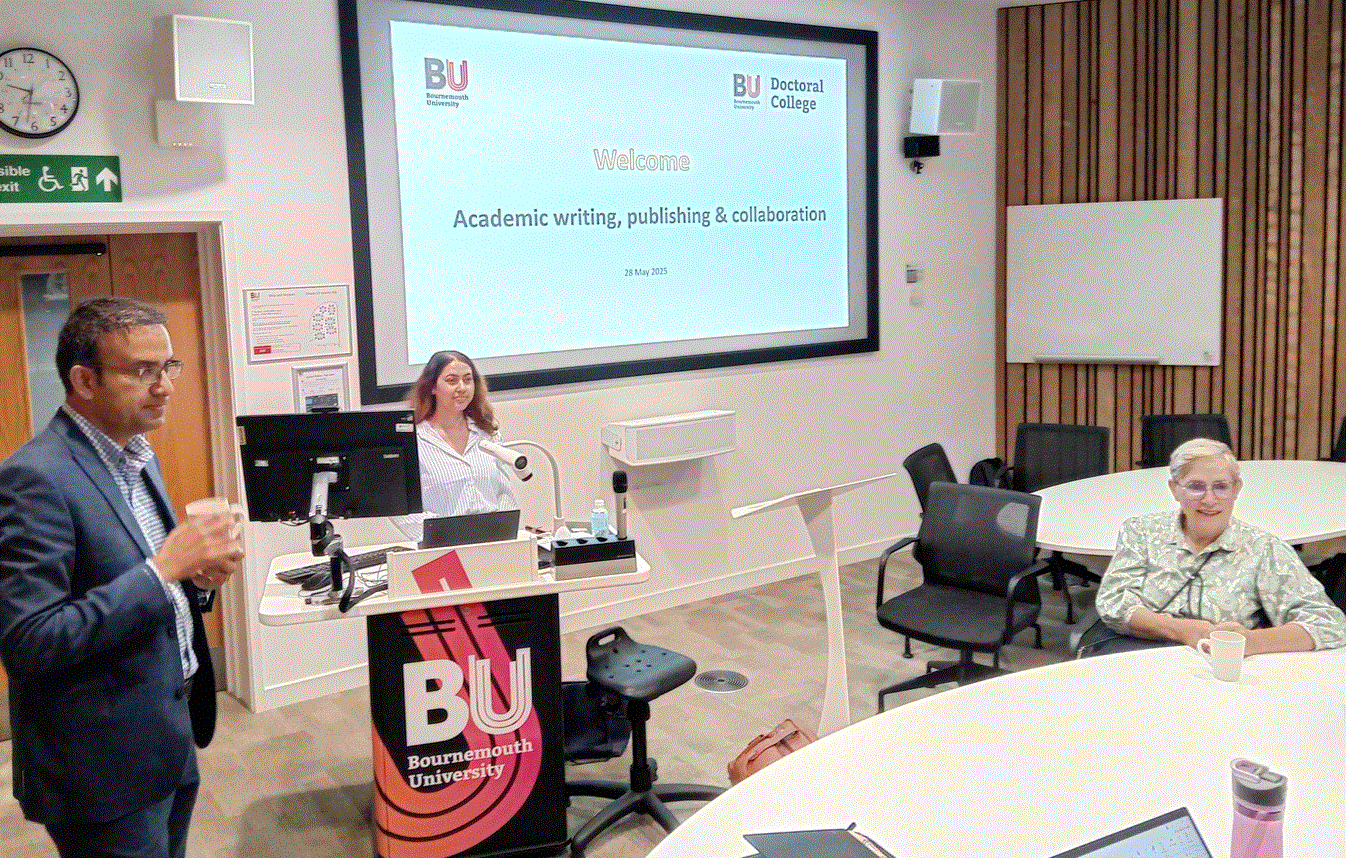 Last week’s workshop on ‘Academic Writing, Publishing & Collaborating’ held at Talbot Campus organised by Mrs. Anjana Paudyal, Ph.D. student in FHSS (Faculty of Health & Social Sciences) was very engaging and very well attended. This event was part of the Doctoral College’s Research Culture and Community workshop series. The workshop was opened by Anjana, who spoke about publishing her first PhD paper in the first half year of her part-time PhD journey.
Last week’s workshop on ‘Academic Writing, Publishing & Collaborating’ held at Talbot Campus organised by Mrs. Anjana Paudyal, Ph.D. student in FHSS (Faculty of Health & Social Sciences) was very engaging and very well attended. This event was part of the Doctoral College’s Research Culture and Community workshop series. The workshop was opened by Anjana, who spoke about publishing her first PhD paper in the first half year of her part-time PhD journey. Key sessions in this interactive workshop included presentations from Ms. Jillian Ireland based at UHD (University Hospitals Dorset NHS Foundation Trust) and academics based at BU. Jillian spoke about her experience of publishing in practice journals as well as publishing papers about practice in academic journals.
Key sessions in this interactive workshop included presentations from Ms. Jillian Ireland based at UHD (University Hospitals Dorset NHS Foundation Trust) and academics based at BU. Jillian spoke about her experience of publishing in practice journals as well as publishing papers about practice in academic journals.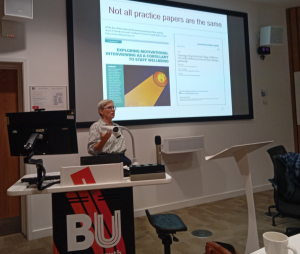
 papers or reports.
papers or reports.

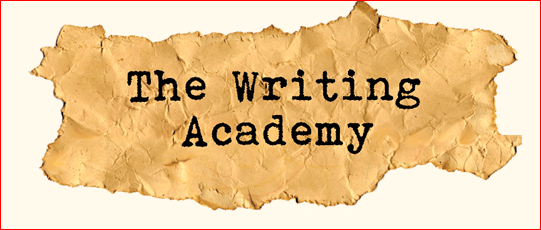


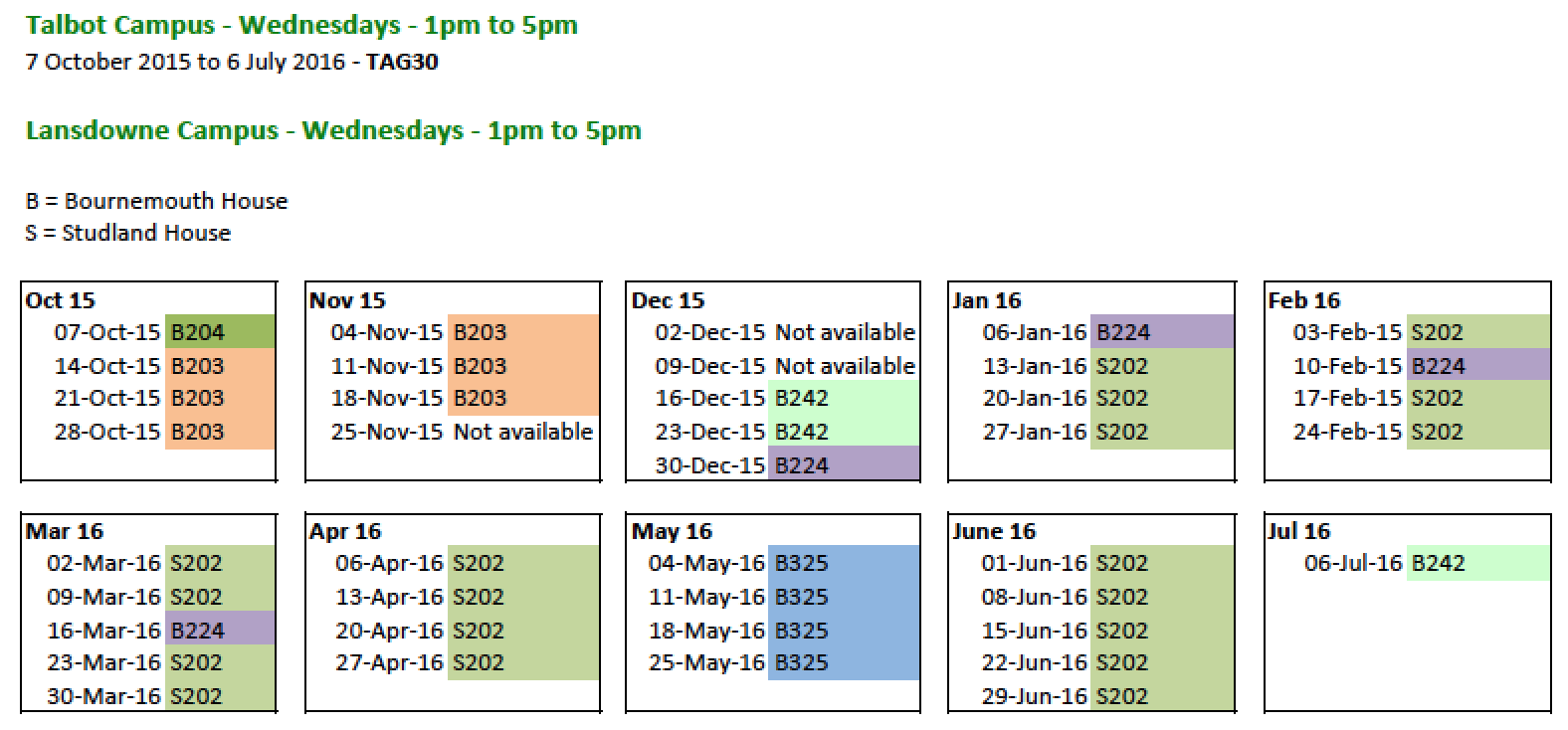
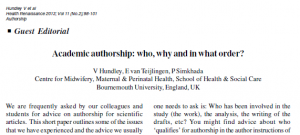
 Coming soon is essential training on book writing. A must for researchers, especially those looking to write their first book.
Coming soon is essential training on book writing. A must for researchers, especially those looking to write their first book.












 SPROUT: From Sustainable Research to Sustainable Research Lives
SPROUT: From Sustainable Research to Sustainable Research Lives BRIAN upgrade and new look
BRIAN upgrade and new look Seeing the fruits of your labour in Bangladesh
Seeing the fruits of your labour in Bangladesh Exploring Embodied Research: Body Map Storytelling Workshop & Research Seminar
Exploring Embodied Research: Body Map Storytelling Workshop & Research Seminar Marking a Milestone: The Swash Channel Wreck Book Launch
Marking a Milestone: The Swash Channel Wreck Book Launch ECR Funding Open Call: Research Culture & Community Grant – Application Deadline Friday 12 December
ECR Funding Open Call: Research Culture & Community Grant – Application Deadline Friday 12 December MSCA Postdoctoral Fellowships 2025 Call
MSCA Postdoctoral Fellowships 2025 Call ERC Advanced Grant 2025 Webinar
ERC Advanced Grant 2025 Webinar Update on UKRO services
Update on UKRO services European research project exploring use of ‘virtual twins’ to better manage metabolic associated fatty liver disease
European research project exploring use of ‘virtual twins’ to better manage metabolic associated fatty liver disease